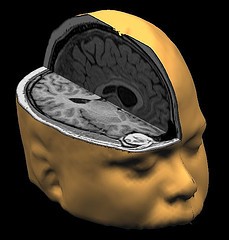Your Brain on Drugs? Irish Cocaine Researchers Say - It's Very Different
Irish researchers will reveal study data today that shows remarkable differences in the pre frontal cortexes of addicts and non addicts.
Fundamentally, we believe that addicts overcoming an addiction to cocaine, as for other drugs, must demonstrate will-power and determination – and conversely, that those addicts unable to quit somehow lack will-power.
Trinity College researchers in Ireland say differently, and will present data summarizing their research later today.
The Trinity scientists scanned the brains of cocaine addicts as they performed certain computer tasks, and observed significant differences in the activity level, and even of the structure, in the pre frontal cortexes of these addicts.
The pre frontal cortex serves as the brain's higher order thinking machine, and is responsible for impulse control, among myriad other things. It's our pre frontal cortex which grants us our humanity - and it's our pre frontal cortex which grants us will-power.
The Irish researchers, explaining the significant differences seen in the pre-frontal cortexes of cocaine addicts, cannot yet say whether the subjects were more susceptible to addiction due to this genetically altered brain structuring, or whether cocaine abuse was the cause of the alteration. They hypothesize the former, and suggest that people born with these unusual pre frontal cortexes may be more at risk to addiction and other forms of impulse control and impulsivity.
The scientists celebrate their findings as a leap forward in the knowledge cannon of cocaine addiction, and hope that their results may contribute to the development of effective pharmacological interventions for cocaine addiction treatment.
Traditional therapies use counseling models to help addicts overcome compulsions to use. The scientists suggest that these strategies alone may don’t offer addicts a great chance against relapse, and that these people really need medication and learned strategies to minimize temptation and exposure during early recovery.
Research leader Dr Hugh Garavan summarized with "This research helps us move away from thinking of drug dependence as a moral weakness and allows us to see it as more of a medical condition.


